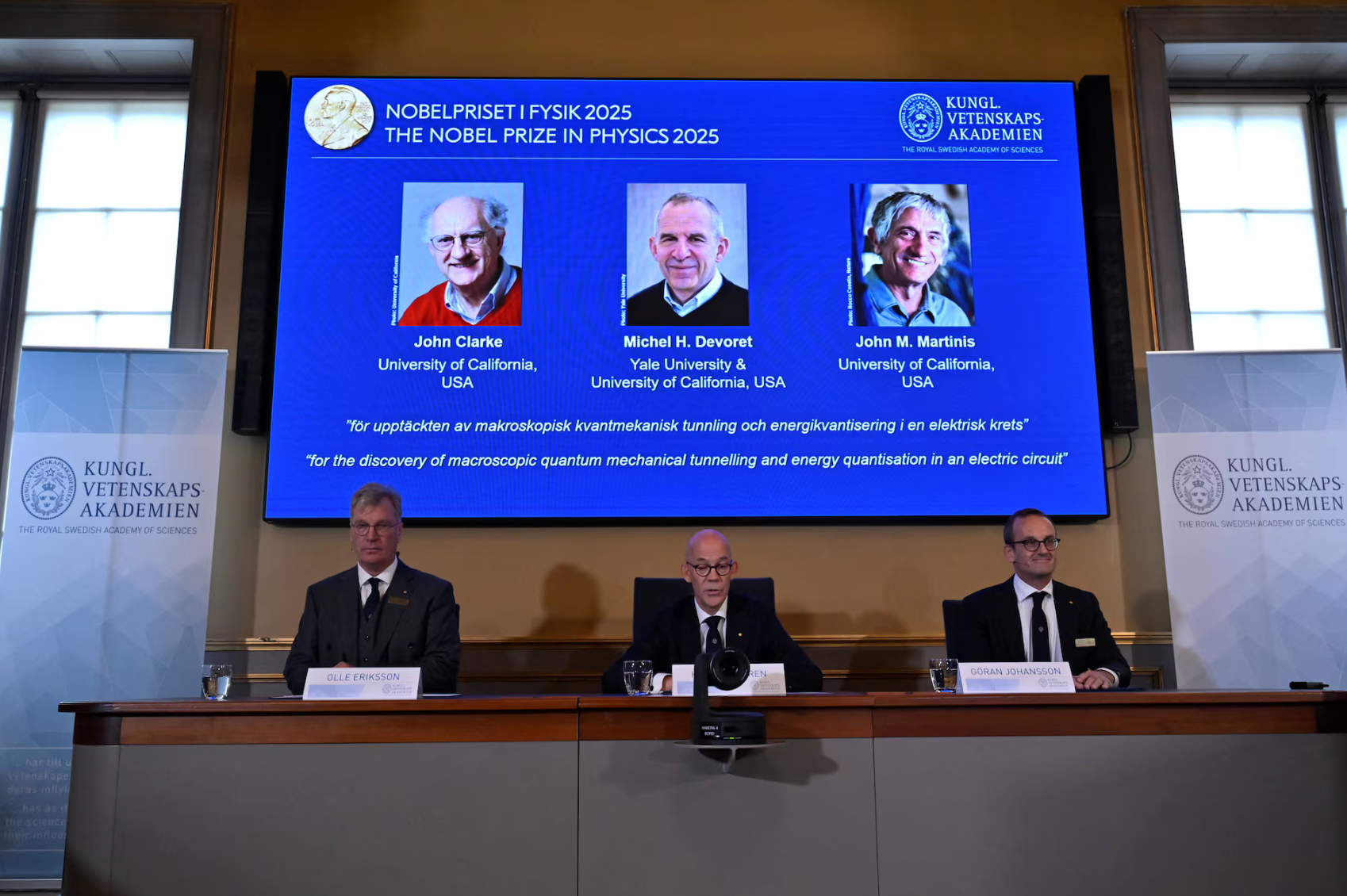Nobel Prize in Physics 2025: Honoring the trio of scientists who revealed real-life quantum physics
On October 7, the Royal Swedish Academy of Sciences announced that the 2025 Nobel Prize in Physics went to three scientists working in the US: John Clarke, Michel Devoret and John Martinis.
Their work has led to groundbreaking experiments that for the first time show that quantum effects can manifest in the macroscopic world, paving the way for the next generation of digital technology.

The prestigious prize worth 11 million Swedish kronor (about 1.2 million USD) was awarded to three scientists for "experiments that have revealed the workings of quantum physics", laying the foundation for the development of next-generation quantum technology.
Sharing his feelings over the phone with the organizers, Professor John Clarke of the University of California, Berkeley, said: "I was completely stunned. Of course, I never thought that this work could be the basis for a Nobel Prize."
“I'm talking on a cell phone and I'm guessing you are too, and one of the fundamental reasons why the phone works is because of all this research,” he added wryly.
"New surprises" from a century-old theory
The laws of quantum mechanics are known at the very small scale of atoms and subatomic particles, whose behavior is often considered strange and counterintuitive compared to the classical physics of the macroscopic world.
However, in the mid-1980s, a trio of scientists performed pioneering experiments with an electronic circuit made from superconducting material. They demonstrated that, under certain conditions, the laws of quantum mechanics could also influence and govern everyday objects.
"It's wonderful to be able to celebrate the way quantum mechanics, a century-old theory, keeps bringing new surprises. It's also incredibly useful, because quantum mechanics is the basis of all digital technology," said Olle Eriksson, Chairman of the Nobel Committee for Physics.
The foundation of quantum computers and future technology
In a press release, the Royal Swedish Academy of Sciences emphasized: "This year's Nobel Prize in Physics has opened up opportunities to develop the next generation of quantum technologies, including quantum cryptography, quantum computers and quantum sensors."
Quantum technology is already ubiquitous, with the transistors in computer chips being the prime example. The next generation of technology that the 2025 Nobel Laureates are aiming for has even greater potential.
Quantum computers, which operate on the principles of quantum mechanics, are capable of performing complex calculations, predicting results and analyzing data that would take traditional supercomputers millions of years to solve. The field is expected to help solve some of humanity's most pressing problems, such as climate change.
Award winners and their connection to Google
All three scientists honored this year are working at top universities in the US. John Clarke, a British-born scientist, is a professor at the University of California, Berkeley. Michel Devoret, a French-born scientist, is a professor at Yale University and the University of California, Santa Barbara. John Martinis, an American, is also a professor at the University of California, Santa Barbara.
Notably, two of the three winners have close ties to tech giant Google. Professor Martinis led Google's Quantum Artificial Intelligence Lab until 2020. It was there that he and his team announced in 2019 that they had achieved "quantum supremacy" - when a quantum computer solves a problem that far exceeds the capabilities of the world's most powerful supercomputer.
Meanwhile, Professor Devoret is also currently the chief scientist at Google Quantum AI.
Physics is the second Nobel Prize announced this week, after the Nobel Prize in Physiology or Medicine honored two American scientists and a Japanese scientist for breakthroughs in understanding the immune system.
The Nobel Prize in Chemistry will be announced on October 8. The official award ceremony will be held in Stockholm, Sweden, on December 10, the anniversary of the death of founder Alfred Nobel.
